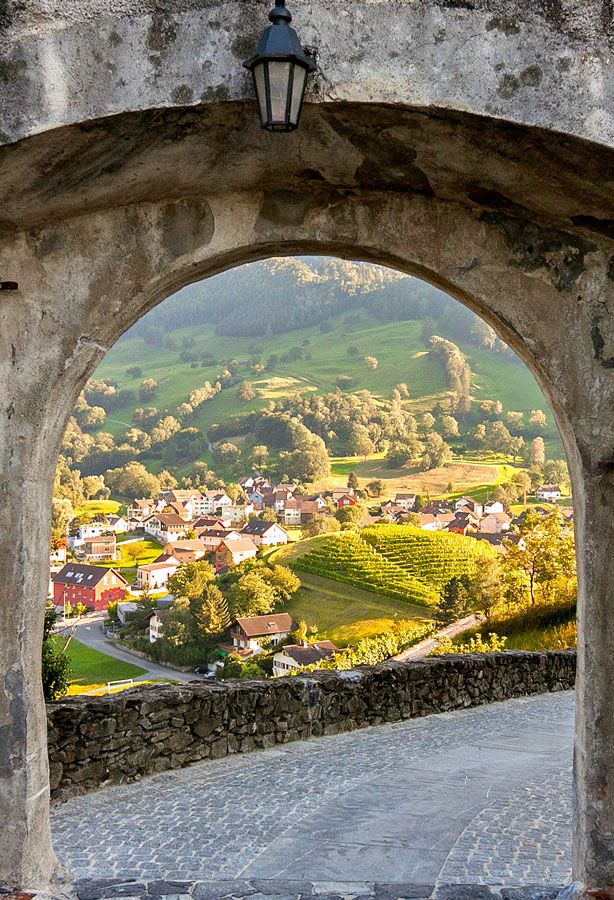As their name suggests, landlocked countries are completely surrounded by land, with no direct access to a major body of water. There are 44 such countries in the world, but only two of those are considered doubly landlocked: Liechtenstein and Uzbekistan. That means these countries aren’t just separated from a major body of water by one country — they are, in fact, surrounded by other landlocked countries. Wondering what it’s like to live in a country where you’d need to travel across two international borders to reach the ocean? Check out these fascinating facts about the world’s only doubly landlocked countries.
Liechtenstein Became Double Landlocked in 1918
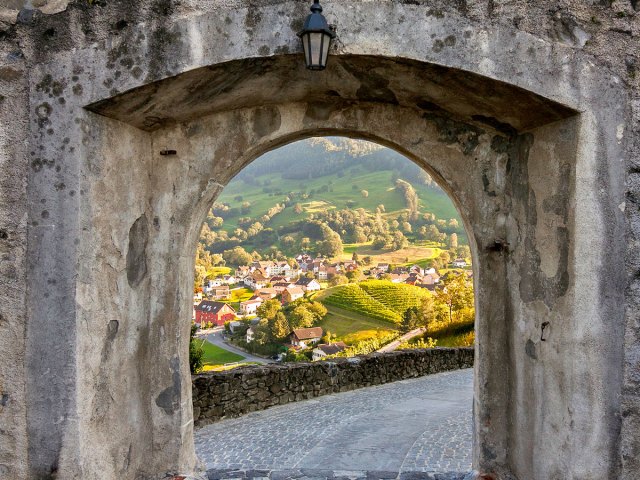
It’s easy to miss Liechtenstein on a map at first glance — as the world’s sixth-smallest country, it covers only 62 square miles. However, that’s more than enough space for the fewer than 40,000 residents who live there. The micronation is landlocked in the scenic Alps, between Switzerland and Austria. It is double-landlocked by France, Germany, Czech Republic, Slovakia, Hungary, Slovenia, and Italy.
Liechtenstein shares much in common with the two countries it borders, including many economic, military, and financial similarities. The residents of Liechtenstein speak German like their Austrian neighbors and use the Swiss franc as their currency, a nod to their close financial ties with Switzerland.
Although Liechtenstein became an independent nation in 1719, it wasn’t doubly landlocked until the end of World War I, thanks to the dissolution of the Austro-Hungary Empire. The end of the empire saw the formation of Czechoslovakia, along with many other nations, which sealed Liechtenstein’s status as a doubly landlocked country in 1918. It remained the world’s only doubly landlocked country until 1991, when Uzbekistan would gain the same designation.
Liechtenstein Hasn’t Slowed Its Economy Down
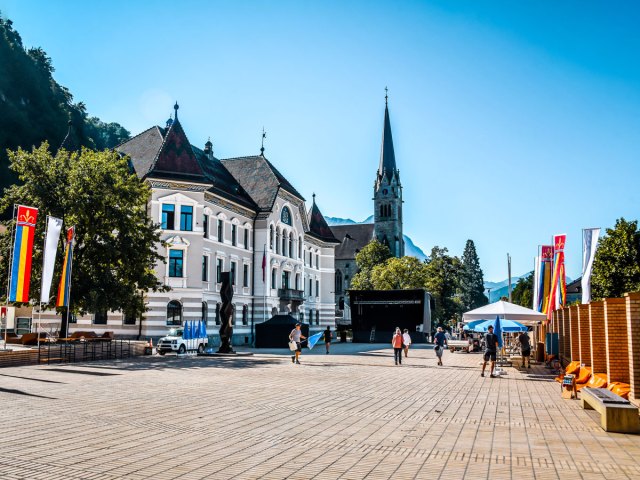
Because landlocked countries have no direct access to an ocean, they have a natural disadvantage on the global market. It takes more time and money to import and export goods without access to ocean ports. This became such an issue that the United Nations called for an international conference on landlocked countries’ rights in 2003. The goal was to ensure the landlocked countries had transit rights so they could take part in international trading, with a particular concern for double landlocked countries. These nations have to rely on a variety of international agreements to maintain their ability to import and export.
While other countries struggle to develop economically due to their landlocked status, Liechtenstein hasn’t suffered the same fate. It’s a relatively wealthy nation, thanks in part to its ties to other prosperous European nations. According to the country’s official website, there are over 5,000 businesses in Liechtenstein, mostly in the financial and tech industries. It also has a very low unemployment rate.
However, Liechtenstein came under intense international scrutiny around 2008 for its reputation as a tax haven. Historically, many corporations and wealthy individuals have looked to Liechtenstein to avoid paying higher taxes elsewhere. While that tax haven status helped to bolster the small nation’s own economic strength, it started to cast a shadow on the country’s reputation. Liechtenstein now shares financial information with the United States, as well as several other nations, and continues to work on tightening regulations within the financial sector.
Uzbekistan Was Part of the Ancient Silk Road
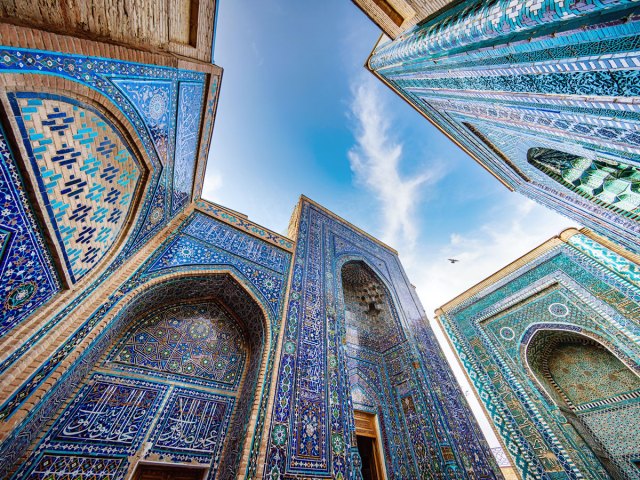
Uzbekistan formed in 1991 after the dissolution of the U.S.S.R. The collapse of what was once the world’s largest country left 15 new independent nations in its place. Today, Uzbekistan is landlocked by Kazakhstan, Kyrgyzstan, Tajikistan, Afghanistan, and Turkmenistan. It is double-landlocked by China, Pakistan, Iran, Azerbaijan, and Russia.
Looking at a map, however, it’s not immediately clear that Uzbekistan is double-landlocked. Two of the nations that landlock Uzbekistan — Kazakhstan and Turkmenistan — border the Caspian Sea. While it may be called a sea, geographically speaking, a body of water is a sea only when it feeds into an ocean. The Caspian Sea doesn’t, so it’s technically the world’s largest lake, with an area of 143,000 square miles.
Uzbekistan is significantly larger than its fellow double-landlocked country, Liechtenstein. It has nearly 173,000 square miles and more than 32 million residents. Uzbekistan is located along the famous Silk Road, a network of trade routes used from the second century BCE until the mid-15th century. That location led to a significant amount of ethnic diversity in the country.
Uzbekistan Is a Major Exporter of Cotton
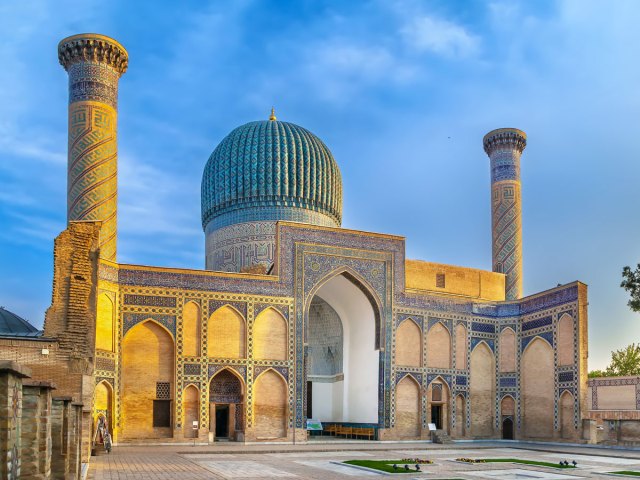
The landlocked status of Uzbekistan has created many economic disadvantages for the nation. The World Bank reports that two factors slowing down economic growth in the region are delays in the time it takes trucks trying to cross the Uzbekistan border, as well as extra fees. Almost a quarter of those fees are considered unofficial costs, such as bribes to pass through more quickly. Unfortunately, that means it’s sometimes faster and cheaper to avoid Uzbekistan altogether when it comes to imports and exports.
Nonetheless, Uzbekistan is working to overcome the economic disadvantages it faces. A change in leadership in 2016 led to the country looking to play a bigger role in the global marketplace. The country is the third-largest cotton exporter in the world, with much of its production done by small farmers. Uzbekistan’s cotton was once referred to as “white gold” for the profitability of its industry. While cotton still plays a major role in the country’s economy, production has scaled back since the height of the Soviet era because of concerns over labor practices, environmental impacts, and depletion of the country’s water supply, particularly the Aral Sea.
The country is also heavily influenced by neighbors Russia and China, so when their economy slows down, so does Uzbekistan’s. Government officials are trying to encourage diversification in exports and are looking to increase the amount of international investment in the country.
More from our network
Daily Passport is part of Inbox Studio, an email-first media company. *Indicates a third-party property.






